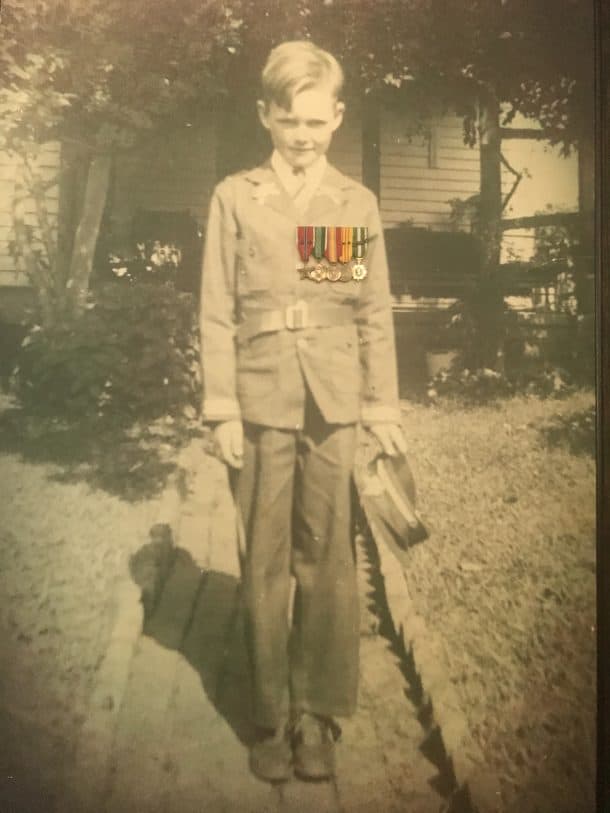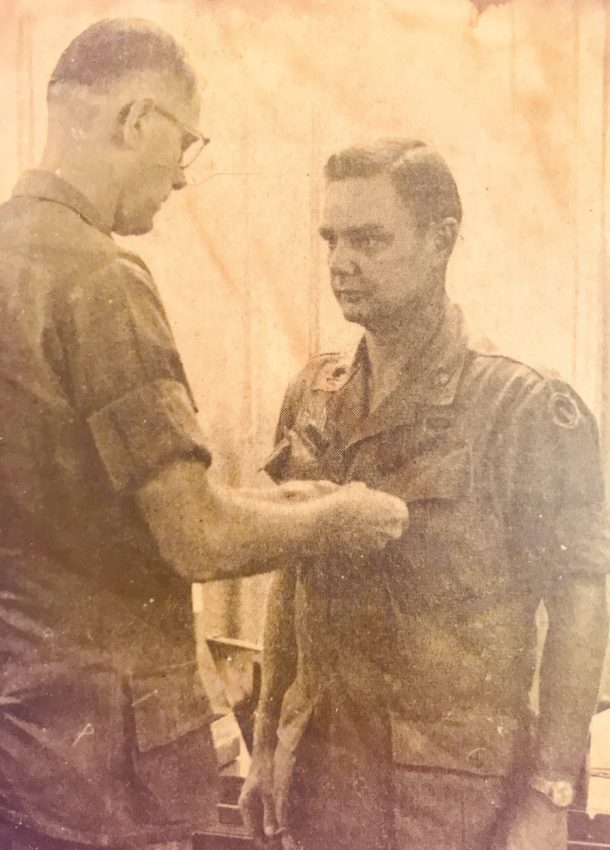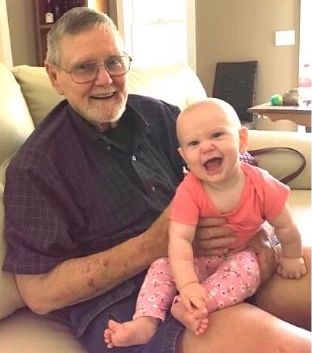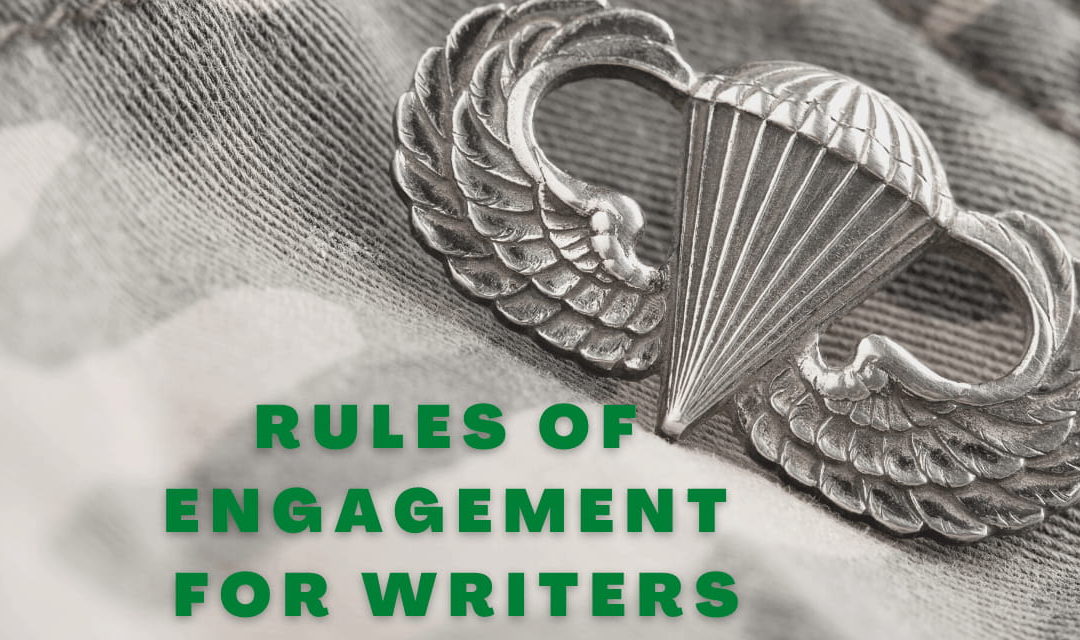
My father died last week. The Colonel was the one family and friends invariably went to for advice, and he was always more than happy to hand out his own brand of wisdom, battle-tested in combat and inspired by his personal holy trinity of Jesus, Patton, and Napoleon Hill. As I work on book four of my Mercy Carr series in the wake of his passing, I realize that the lessons he taught me inform my writing as much as my real life.
PMA
The Colonel’s approach to problem-solving was simple: If you have a problem, you fix it. Failing that, you grin and bear it. Either way, maintaining a Positive Mental Attitude is critical. Which is true, especially for writers. PMA helps us survive the slings and arrows of our calling—rewrites and rejections and reviews—as well as the vagaries of the publishing business itself—mergers and acquisitions and the revolving door of editors and the rise and fall of bookstores and chains and digital publishing and pandemics….
The writing itself is the one thing we can control. And a positive mental attitude keeps us writing.
SAY WHAT YOU MEAN AND MEAN WHAT YOU SAY.
Clarity and candor are the hallmarks of good communication, according to the Colonel. Good writing is clear and concise, honest and forthright. Hemingway said, “All you have to do is write one true sentence … and then go on from there.” Dad would agree and would applaud Hemingway’s brevity as well. When he read my first Mercy Carr novel, A Borrowing of Bones (which was dedicated to him), he told me that “it was pretty good, but a little wordy.”
Noted, sir.
BE PREPARED.
My father believed that nearly every problem could be solved and every contingency prepared for if you planned ahead and if you were organized. An intelligence report, a battle plan, an exit strategy. A place for everything and everything in its place. His closet was a masterpiece of efficiency, as were his garage and his gun safe. He polished his boots and his brass every night before he went to bed. So when disaster struck, he was ready.
The same is true of plotting stories. This same preparedness has helped me get through many a first draft. When I do my research, define the major conflicts, and debate the most satisfying outcomes, even when I don’t have a scene-by-scene outline for the entire book I usually have enough to keep me moving forward to The End. When I do encounter blocks or fall into plot holes or go off on tangents, I go back to those basic tools—research, conflicts, outcomes—to help me get back on track.

ADVERSITY BUILDS CHARACTER.
Whenever something bad happened to me, Dad would remind me of this. And as much as I hated hearing it, now I remember it when I plot my stories. Readers prefer protagonists who fight the good fight, who soldier on, who persevere, no matter what you throw at them. And the more you throw at them, the better.
Note: During a particularly difficult time in my life, my dad expressed outrage at the string of bad luck and happenstance that had befallen me. When I reminded him that Adversity Builds Character, he said, “You’ve got enough character.”
It was the nicest thing he ever said to me.
Note: During a particularly difficult time in my life, my dad expressed outrage at the string of bad luck and happenstance that had befallen me. When I reminded him that Adversity Builds Character, he said, “You’ve got enough character.”
It was the nicest thing he ever said to me.
FIGHT TO WIN.
Years ago I found myself involved in a legal disagreement that I thought was unfair, inappropriate, and completely unnecessary. I kept expecting the other party to come to his senses and spare us all the time, energy, and expense of a court battle. My father told me, “You didn’t start this fight. But you’re in it, like it or not. Fight to win.”
Our protagonists need to fight to win, too. Readers root for heroes who go the extra mile, who fight on despite the odds against them. Anything less is unworthy of our characters and our stories and our readers.
PS: I won.
NEVER GIVE UP, NEVER SURRENDER.
For the Colonel, the mission was everything. Whether that mission was rescuing POWs in Vietnam or teaching his grandchildren to drive or helping out at the local women’s shelter, he was determined to see it through, come hell or high water. He understood that losing the battle did not mean losing the war.
For many writers, the mission is to get published. The road to publication can be a long and bumpy ride; there can be a lot of lost battles along the way. But as I tell my clients and my writing students, ultimately persistence is more important than talent. We all know talented writers who burned out or got bored or moved on to more lucrative pursuits, while others with more to learn stuck with it and ended up with multibook contracts.
The war is yours to win if you never give up.

ERST KOMME ICH.
My father grew up speaking German on the family farm in southern Indiana—and he often resorted to German expressions when English wouldn’t suffice. Whenever he felt I was putting kids, spouse, job, and more ahead of my own best interests, he would say this: Erst komme Ich, und wieder erst komme Ich, und dann kommst du. Which means “Me first, me first again, and then you.”
If we are to get our work done, we need to prioritize our writing. Too often our writing comes dead last on our to-do list, after all manner of other obligations. But our first responsibility to ourselves as writers is to write. Repeat after me: My writing first, my writing first again, and then….
AS LONG AS IT MAKES A GOOD STORY
My father was a great storyteller, as was his father Ed, a schoolteacher who would tease Dad and his little sister by telling them a bedtime story with no words. Grandpa Ed would just move his lips silently, while Dad and his sister begged for a real story.

For the Colonel, real stories were the best—and the best real stories came from real life. He would always tell me that it didn’t matter what happens to you, as long as it makes a good story later.
As writers we know that, as Nora Ephron famously pointed out, “Everything is copy.” Dad let me in on that secret early on, giving me permission to embrace both the good and the bad in this life and to tell my own stories my own way.
And that was the best lesson of all.
This post was originally published at The Career Authors


I’m so glad to have found your post. Thank you for sharing your personal story and the pictures. I ordered your latest book and can’t wait to read it.
Thank you for sharing this story. I enjoyed the advice and need to remember to follow much of it. Discovering your site is my good fortune.